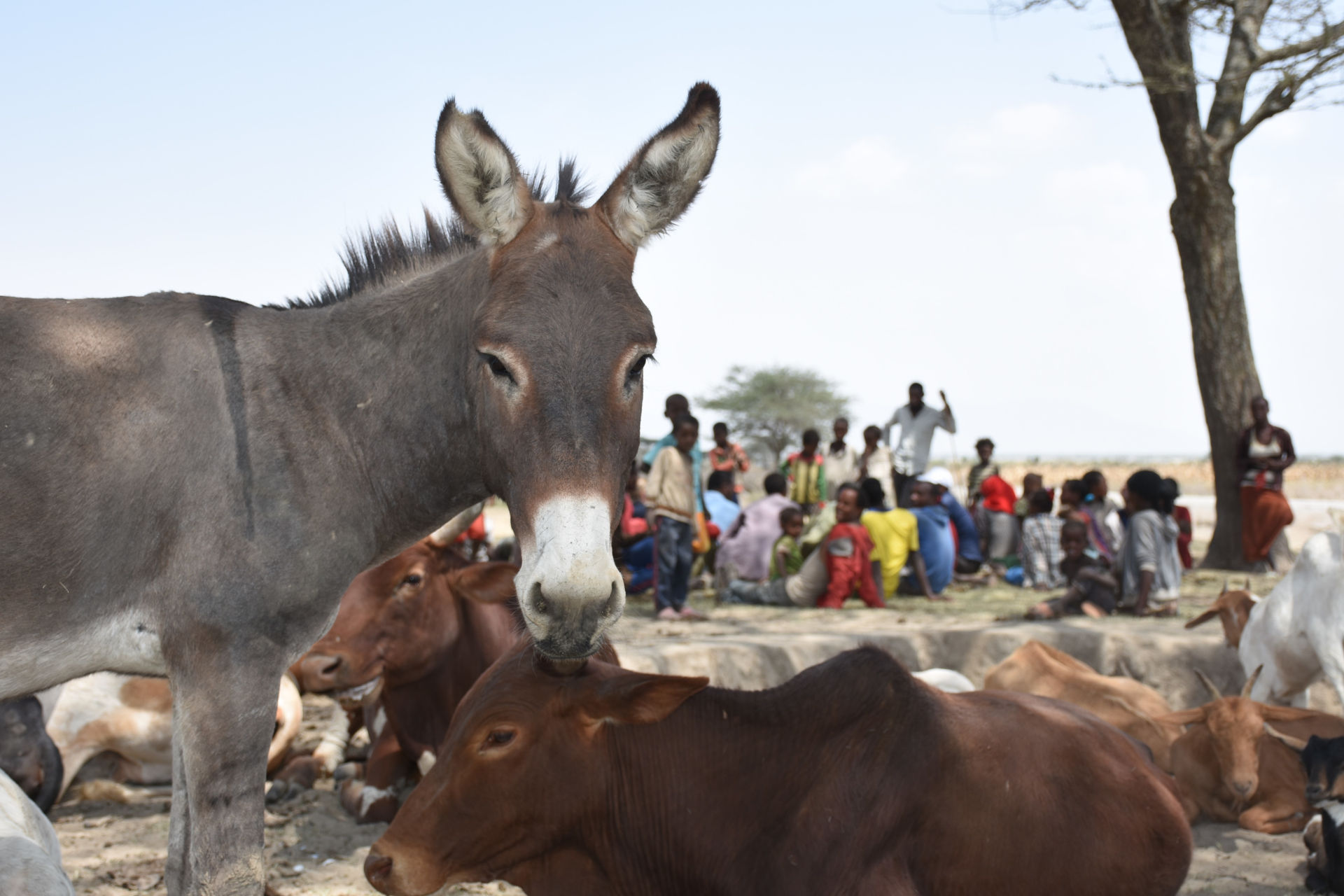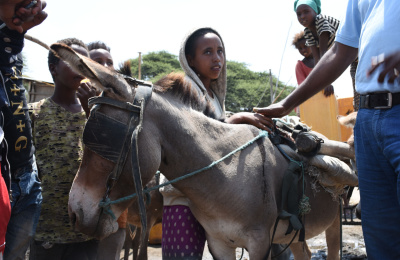In Harabafta Village, Ethiopia, Samuna’s three donkeys play a pivotal role in supporting her family. The lives of the people, along with their herd of livestock, depend on the hardworking donkeys to fetch water.
Samuna became head of her household after her husband passed away 11 years ago. She cares for her eight children, maintains the property and also manages a large herd of livestock – which provide her main source of income.
Update – 03.09.2019
Donkey owners like Samuna, who care for their donkeys so deeply, often fear that their donkeys will be stolen for the skin trade. Donkeys in rural communities like Harabafta Village are at risk of being unlawfully slaughtered and skinned to provide gelatine for ejiao, a traditional Chinese medicine.
Thankfully, recent reports suggest that donkey slaughter in Ethiopia is looking “increasingly unlikely”. A controversial donkey slaughterhouse in Ethiopia had been put up for sale, having operated for just one month since it was opened in March 2017. The facility was closed by the authorities in April 2017 following opposition from local residents, who protested that donkey slaughter was against their culture and beliefs
The sale of the slaughterhouse will give a sense of closure to local residents who have fought against the skin trade. For donkey owners like Samuna, who not only loves her donkeys but would not have a livelihood without them, the news will bring comfort.
Speaking from Ethiopia, The Donkey Sanctuary’s Skins Campaign manager Simon Pope said: "This will be a huge relief to the millions of people in Ethiopia who depend on working donkeys for a livelihood, but also indicates that the skin trade industry has accepted that Ethiopia’s donkeys are not for sale."
A community lifeline
Samuna says: “If there were no donkeys, there’d be no community. Life is based on the donkey, there’s no water available without the donkey.”
Samuna has to travel long distances to obtain the water that is so necessary to the livelihood of her community. The journey can take up to three hours, especially when the waterholes are drying up.
A donkey can carry two panniers of water on its back, but when Samuna has to travel further to find water, she will take three donkeys pulling a cart and can bring back up to 14 panniers in one journey. Without her donkeys, Samuna would not be able to provide water to sustain her livestock and enable her family to eat, drink and wash.
“We were born here, our parents and our families have lived here for many years but always with the help of the donkey. We’ve never ever tried to live here without the donkey – it would be impossible.
“Even though we keep a smaller number of donkeys (compared to other livestock), their value is huge.”



A donkey’s work is not limited to seasons
Another factor which makes donkeys so important and valuable is that their work is not limited to seasons – donkeys are useful every day.
Samuna said: “If you have an ox or other livestock, you can live up to a time when oxen are useful for ploughing or selling for meat, but a donkey is useful every day. If I lose a donkey, it will affect us every day, as he is no longer there to do the daily jobs.
“If we had a household problem and needed money urgently, we’d sell livestock, but not the donkey. We’re a livestock rearing community – we don’t want to sell the animals unless we needed to. Donkeys cost 4,000burr (approx. £108), and even if the price was to increase for a donkey, we can’t sell the donkeys first, they are too important.”
A lifelong partnership
Without Samuna and her donkeys, the residents of Harabafta Village would suffer. Samuna is at the heart of their wellbeing, and the way she cares for and works with her donkeys is a vital part of her importance to the community.
“My donkey is my strength – she is a hero. Donkeys are like my right hand. My donkey doesn’t fail me, she doesn’t stop and is never lazy – she is everywhere I am, doing everything.”
It is clear that Samuna and her family not only rely on their donkeys, but respect and love them too.
“The donkeys are close to me. We love and care for the donkeys. When they come in from working, we provide cereals, bran and water. They have bedding where they live. They need our care.
“My donkey will be around this house until she dies. She is like a member of the family. Even when she is old and can no longer work, you’ll find her in the back yard, where she will stay.”



